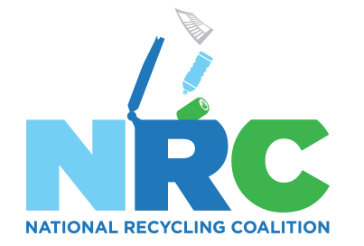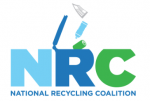National Recycling Coalition sets record straight
NRC calls Shughart’s attacks on recycling dangerously misleading

William F. Shughart II’s recent Commentary, “Recycling makes greenies go gaga, but it’s a real burden for the rest of us” is replete with unfounded assumptions, gross generalizations and false statements that are dangerously misleading. We at the National Recycling Coalition know that recycling makes sound environmental policy, as well as sound business practice, resulting in significant environmental and economic benefits within our local communities, across the country and throughout the globe. It is an undisputed truth that more Americans – and more manufacturers - recycle today than in past decades, and they do so for good reason.
If, in fact as Shughart asserts, “the costs associated with the process of recycling almost always outweigh the benefits” why do manufacturers around the world rely on recycled metal, paper, plastic and other commodities for meeting nearly 50% of their raw material needs? Here in the US, steelmakers rely on iron and steel scrap – processed from items as diverse as automobiles, household appliances demolished bridges and old machinery - to make roughly two-thirds of the steel produced in the country every year. One-third of the U.S. aluminum supply comes from soda cans, aluminum siding and other forms of aluminum scrap.
And paper? Shughart’s statement that “it’s more expensive and more resource-intensive to recycle old paper than to cut and pulp pine trees …” is patently false. If it were true why would the US paper industry rely on recovered fiber produced from such items as old newspapers, magazines, catalogs, office paper and used corrugated boxes for more than half of their supply need today? And yes, paper mills are beating down the door to buy quality scrap paper.
Mr. Shughart proclaims that landfilling is better than recycling, conveniently ignoring the environmental costs of landfilling, as well as the financial costs to our communities. According to the USEPA, “nearly 30 organic hazardous air pollutants have been identified in uncontrolled LFG (landfill gas), including benzene, toluene, ethyl benzene, and vinyl chloride. Exposure to these pollutants can lead to adverse health effects.” Landfills are also the third-largest source of human-related methane emissions in the United States. Recycling not only avoids these harmful effects, but also the use of recycled instead of virgin materials. This reduces the production of carbon dioxide by significantly saving the amount of energy needed to manufacture the products that we buy, build and use every day.
A true cost comparison of recycling and landfilling must examine the full costs of those services on a program by program basis. There is great variation across the country. Researching the costs of each program requires an analysis of curbside collection and processing/management costs - however, the majority of recycling programs offer opportunities for revenues to offset some recycling costs – waste to landfill offers no such opportunity.
Recycling is an important economic engine and job creator, supporting hundreds of thousands of jobs across the country and generating $11.2 billion in tax revenues for the federal, state and local governments. Every 10,000 metric tons of recyclables generates 37 jobs, which equates to $1.1 million in wages and $330,000 in tax revenues And recycling’s economic benefits can be found in every state across the country.
Recycling also avoids the mining and extraction of raw materials, reducing environmental impacts in communities where mining waste can seriously degrade local landscapes and water resources. Conservation of natural resources is often not “counted” yet is a major benefit of recycling. Through the recycling of aluminum, there is the avoidance of mining bauxite ore. Recycling paper reduces the use of tree pulp. Utilizing recycled glass into new products significantly reduces energy consumption. Far from the “charade” that Shughart claims.
When one looks at the facts, it is clear that recycling makes much more sense than burying or burning our waste. The National Recycling Coalition encourages all Americans to recycle, not just because it seems like the right thing to do but because it makes clear environmental and economic sense.



![[VIDEO] Glacier and the evolution of AI and data-driven technology in recycling [VIDEO] Glacier and the evolution of AI and data-driven technology in recycling](https://media.baumpub.com/files/slides/locale_image/full/0243/60710_en_06c2a_62723_bq4a7681copy.jpg)